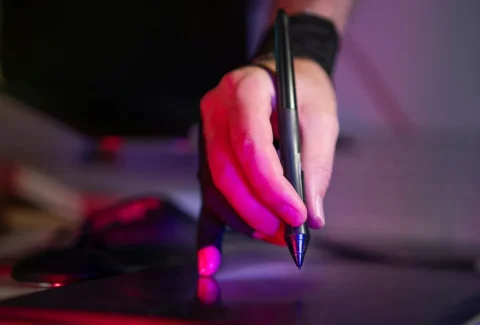Morgan Housel on Spending Money Wisely
The book has garnered some great feedback and several people have given me warm praise about it. 🙂
This one in particular made my day!
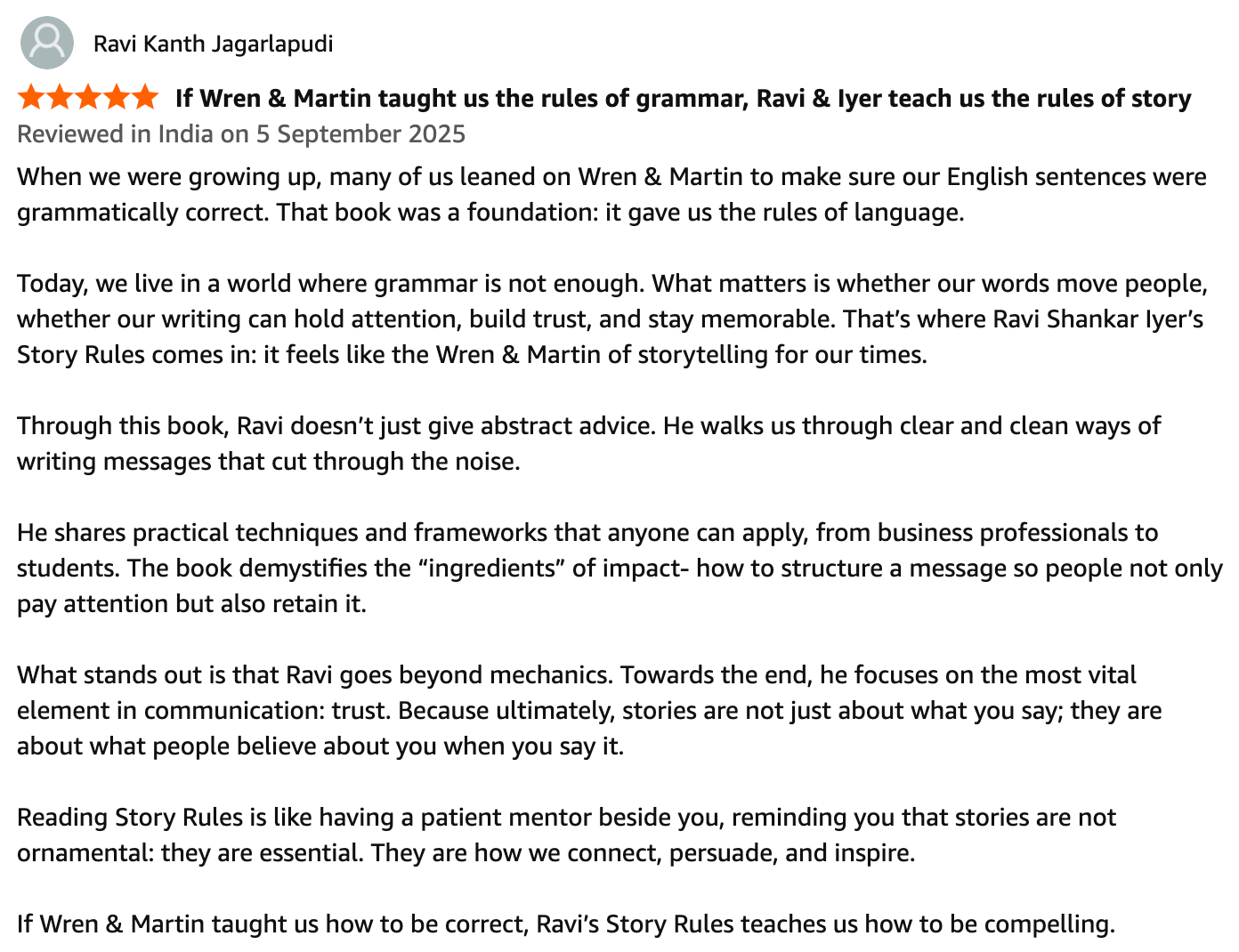
If you haven’t yet checked out the book, do give it a try.
And if you have started reading it, please consider leaving a genuine review on Amazon. Every voice matters!
Thanks for reading The Story Rules Newsletter! Subscribe for free to receive new posts and support my work.
And now, on to the newsletter.
Welcome to the one hundred and thirty-third edition of ‘3-2-1 by Story Rules‘.
A newsletter recommending good examples of storytelling across:
- 3 tweets
- 2 articles, and
- 1 long-form content piece
Let’s dive in.
𝕏 3 Tweets of the week
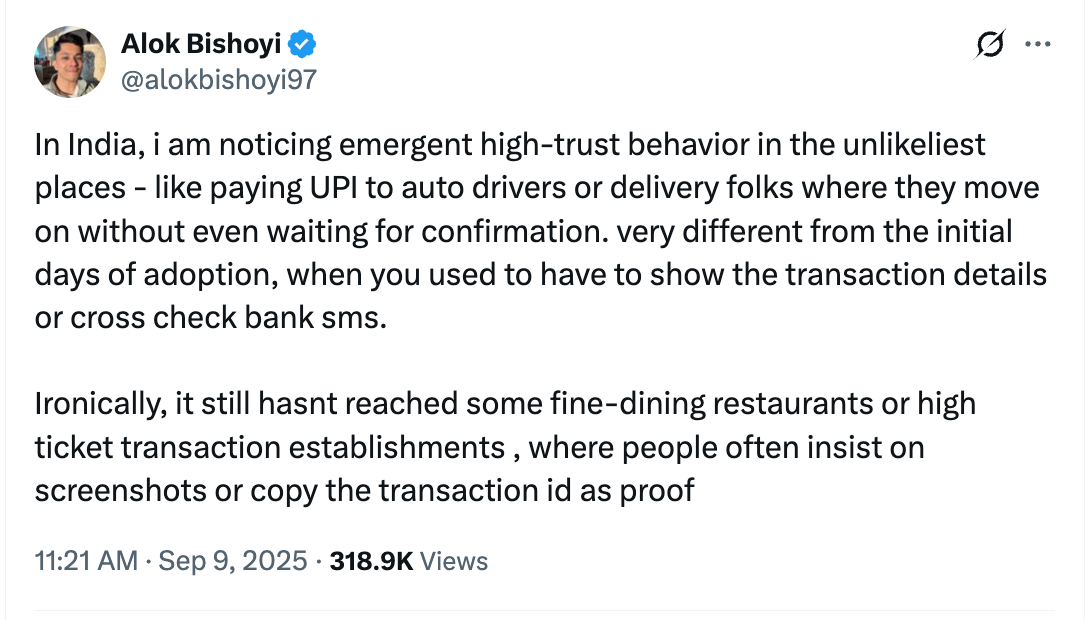
Interesting observation and good use of contrast!
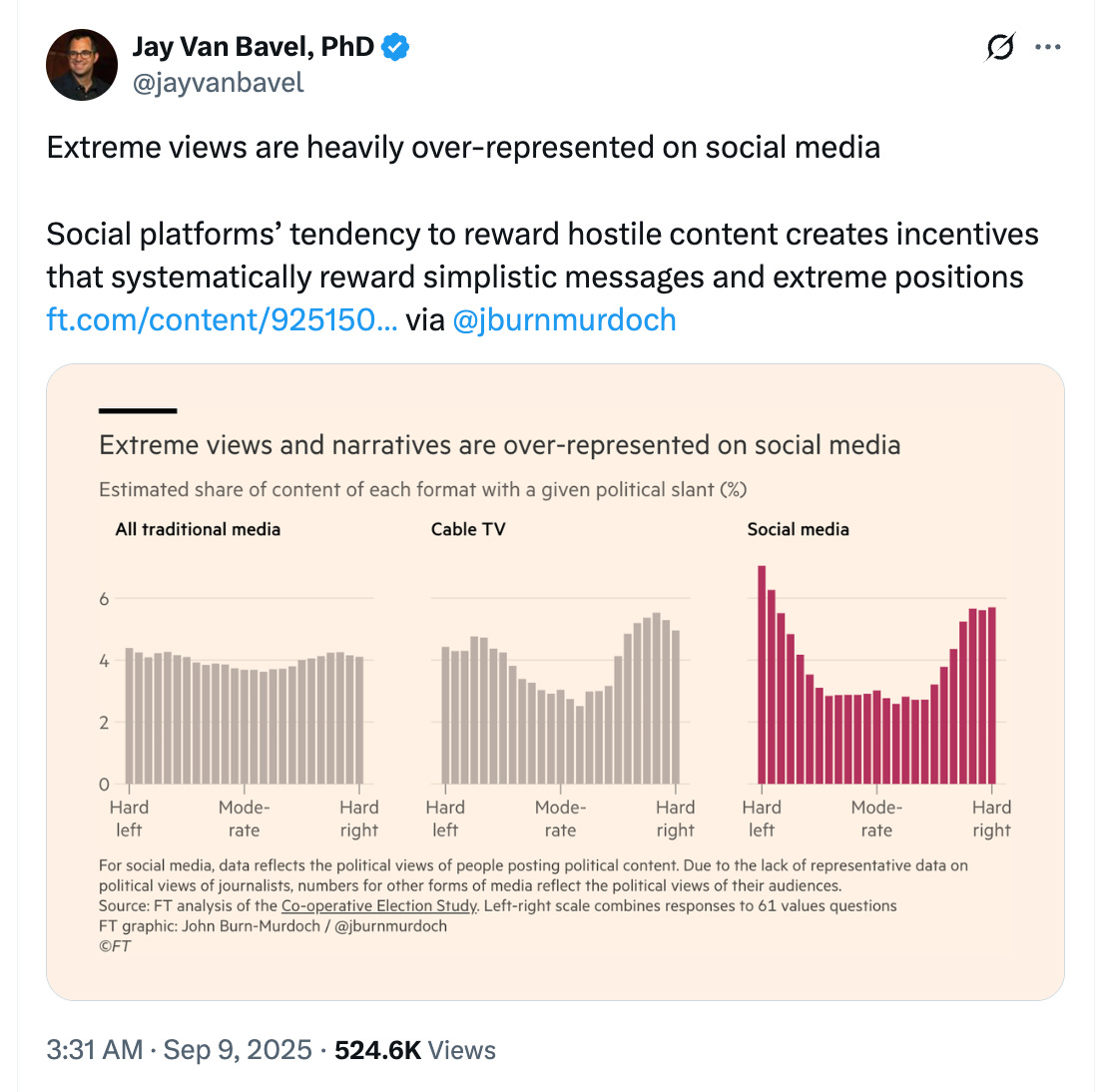
Clear message and lovely use of visual contrast.
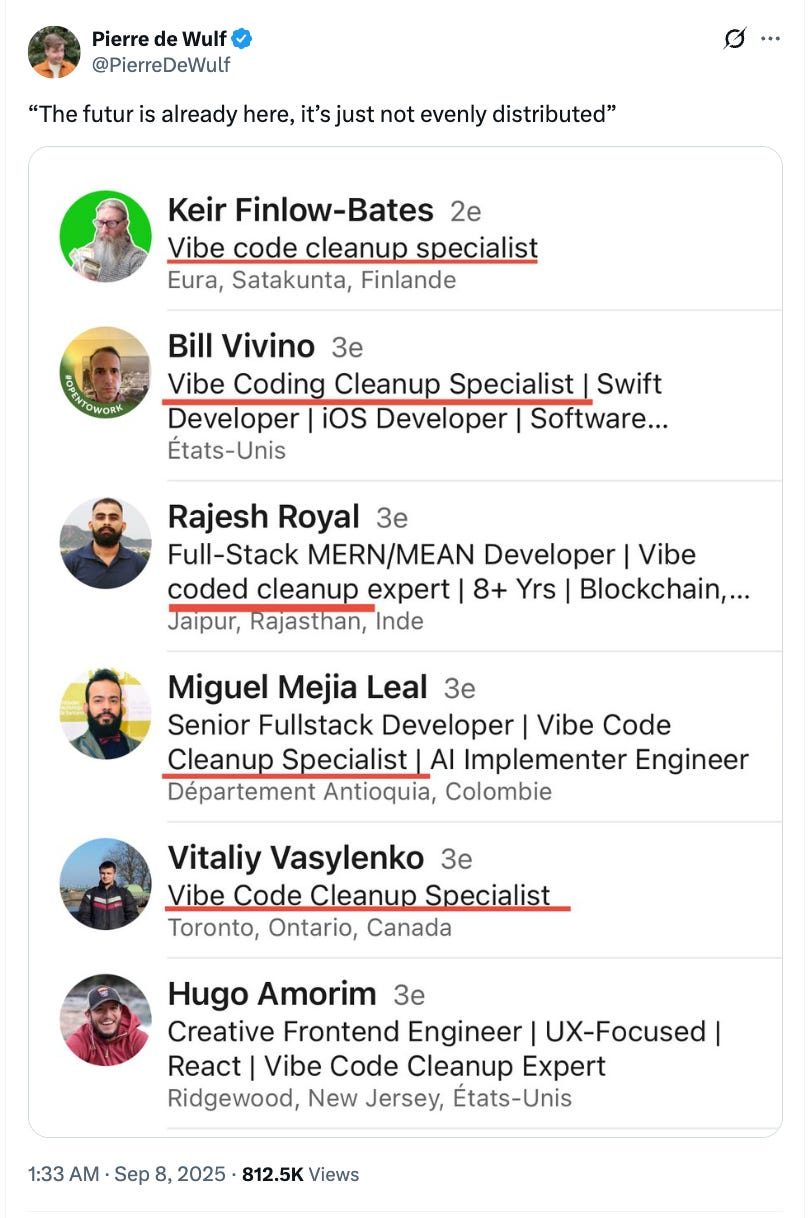
Haha, maybe I should write ‘Vibe Storytelling cleanup expert’ in my profile!
📄 2 Articles of the week
a. ‘A pivot to China?’ by Ajay Shah
This is a lovely counter-intuitive piece by Ajay Shah, who argues that despite the current Trump-induced troubles, India should not lose sight of its long-term relationship with the US.
He starts with the prevailing commentary about a pivot to China…:
With Trump’s tantrums, some in India are ready to rethink the China relationship. Some fantasise of Nixon/Kissinger’s pivot to China, as a way of constricting the USSR, and think that India can do similarly with China in order to constrict the US. A greater sense of history, looking back, and a greater strategic sense, looking forward, is required
He says that even though Trump has been like a Category 5 cyclone, the storm will eventually abate:
Donald Trump is indeed a historic low in the US; nobody expected the US to collapse into right wing populism. We generally think that the advanced economies of the world have great institutions, but here we are, the US is now like an emerging market. At the same time, we should not see Trump as a permanent feature of the US. For decades, both parties in the US have supported India’s rise, and looking beyond Trump, we can expect a better US, in terms of reapplying for the label of an advanced democracy, and in terms of good relations with India.
Shah cautions us that we may have some differences with the US… but the differences are much more with China:
Our conflict with the US is about the 50% tariff. Our conflict with China is about much more than this. It was not so long ago that we saw practical Chinese military support for Pakistan. China’s actions on Tibet, Nepal, Bhutan, Bangladesh, Sri Lanka, Burma and Mauritius are all inimical to Indian interests. China preaches multi-polarity in the world but uni-polarity in Asia: their aspiration that India should live in China’s shadow is an unpleasant prospect for us.
He says that India should absorb the trade losses and cushion those affected… but not lose focus on the several other ties that bind us with the US:
The loss of the US market is a modest sized problem which Indian firms will solve, ideally with immediate policy support in the form of removing trade barriers, indirect tax reform and currency depreciation. The US is better than Trump; they will improve in coming years. India’s interests lie with the advanced democracies of the world. It is with the West that we have NRIs, our children studying, incoming foreign capital, the flow of the full knowledge that will make India great, foreign technology from CPUs to Unix to LLMs, global companies operating in India, and our export markets. We should stay this course
b. ‘The Age of Diagnosis’ by Derek Thompson (on X)
A short but fascinating post by Thomson.
There’s been a rise in rates of mental illnesses:
Since the 1990s, rates of autism, ADHD, bipolar, PTSD, anxiety, and depression have skyrocketed. Some of this is surely about real symptomatic changes. But much of it is pure diagnostic inflation, as psychologists expanded the definition of illness.
Some of it could be just re-labelling, as per Thompson:
For many types of people:
– They used to be merely forgetful. Now they have ADHD.
– They used to lack motivation. Now they’re clinically depressed.
– They used to be introverted and a bit awkward. Now they have diagnosable social anxiety.
In an earlier age, we could depend on the strength of community from family and religion… Not so much today:
The age of diagnosis gives us language to describe the inchoate feelings of suffering in life. As O’Sullivan puts it beautifully, we used to answer these questions with religion or community. But in an age where religion and community are in retreat, we go to where the light is on to answer life’s biggest questions. The light is very much on at the doctor’s office.
🎧 1 listen of the week
a. ‘Big Ideas From The Art of Spending Money’ by Morgan Housel
Bestselling author Morgan Housel (‘The Psychology of Money’, ‘Same as Ever’) has written another book (‘The Art of Spending Money’), which is sure to become a bestseller.
In this short episode from his podcast, he shares some core ideas from the book.
The first idea is about the two ways to use money. I loved the use of contrast here:
… there are two ways to use money. One is as a tool to live a better life. The other is as a yardstick of status to measure yourself against others. Many people aspire for the former but spend their life chasing the latter.
It’s not easy to escape the Status Game!
… it is so much easier and so much common to use it as a measuring stick to say, how am I doing relative to you? Do you have more than I do? Do I have more than I do?
Where do we sit in the pecking order? Way more common to use that, even if we want to use it as a tool to be happier and more fulfilled and spend time with people who we enjoy, etc.
I loved the use of chiasmus here (a tool that I cover in chapter 25 of my book, ‘Story Rules’!) in the first two sentences:
… money is a tool that you can use. But if you are not careful, it will use you. It will use you without mercy and often without you even knowing it.
And for many people, money is a financial asset, but a psychological liability. Having a blind lust for more can hijack your identity, control your personality, and wedge out parts of your life that bring greater happiness.
Housel acknowledges that money is important – but as a means, not an end:
… number three, spending money can buy happiness, but it’s often an indirect path. Money itself does not buy happiness, but it can help you find independence and purpose, which are both key ingredients for a happier life if you cultivate them.
Having a big, nice house might make you happier, but mostly because it makes it easier to have friends and family over. And the friends and family are actually what are making you happy
Housel is a master of writing deep, thought-provoking stuff in simple, everyday language.
Listen to the conversation for 3 more ideas that he shares… and then pick up the book for all the 20 ideas it covers.
That’s all from this week’s edition.
Photo by Diana Polekhina on Unsplash



